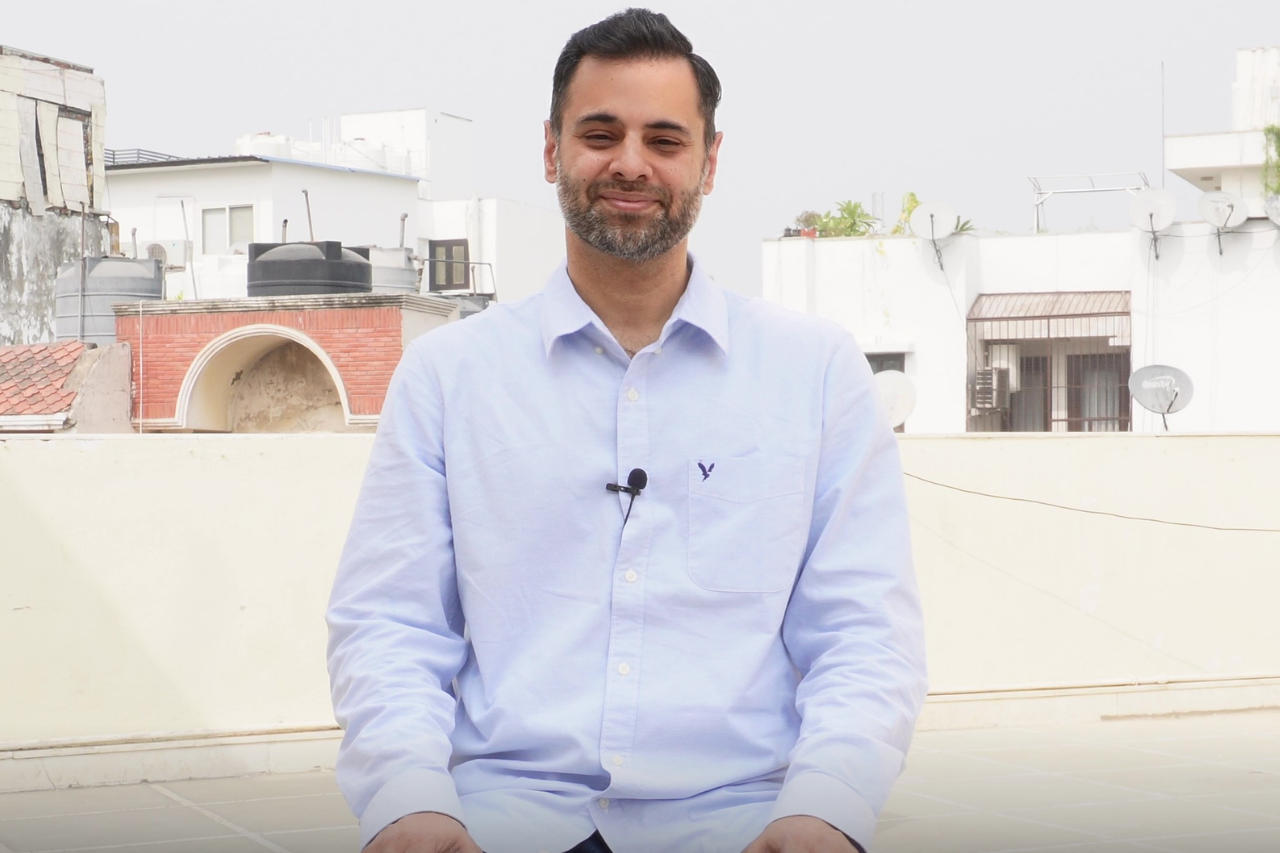One of the most profound statements of Jiddu Krishnamurti is that if you are seeking something with great intensity, you are likely to find it. And this becomes problematic because nothing is permanent in this life. Even the so-called experiences of spiritual awakening or enlightenment do not hold the promise of endless bliss.
If you crave something and get it through sheer hard work and personal effort, you will remain insecure about losing it in the future. Even if the Buddha comes into your dream and tells you that you are enlightened, he will leave eventually. The Buddha cannot stay permanently. There is no permanent state of bliss or everlasting happiness that you can attain through your personal effort.
Enlightenment is a fantasy of the ego mind that thinks it can attain some supreme state through personal effort. People have wasted lives chasing arbitrary concepts, thinking it will take them somewhere where no other human being has ever been. That is the fantasy.
However, I do believe in the concept of spiritual awakening, but there is nothing special about it. On the contrary, it may be a painful experience. Spiritual awakening, in my concept, is just the ego surrendering to the moment after realizing the futility of its Doership.
Doership is the idea that one is the doer of their actions and can attain liberation through personal effort. While effort can help you achieve worldly things, it will not help you to discover your true nature. To know who you are, you have to be the witness of your actions.
In witnessing, things are “seen” in the light of impersonal awareness or “being.” This awareness simply sees things as they are. It is direct perception free from judgments and personal biases. In other words, there is no individual or “me” to witness any happening.
Witnessing happens spontaneously when the ego realizes it is not the doer. However, it is not a constant state. Moments of witnessing expose the covert tricks of the ego, and this mechanism of non-judgemental and non-reactive watchfulness brings relief from suffering.
Spiritual awakening is the Realization that behind appearances is the same consciousness that runs through all. That is all there is to it. There is no such thing as an awakened or enlightened person. The person, even after awakening, continues to live life as before.
Some changes may happen, but the fundamental nature does not change. Alan Watts spoke about an ancient Hebrew teaching that talks about the element of irreducible Rascality in human beings. Awakening is not a mechanism to produce a Guru.
It is simply to wake up and see that the reality of appearances is just a limited perception of the identified aspect of consciousness or ego. There is absolutely nothing special about awakened people other than the fact that they are awake.
The only difference is that their seriousness in life is gone. While they continue to play the game of life, there is no deep involvement with anything. What generally is a life and death question for an ordinary person is simply a happening for a person with spiritual understanding.
And the understanding is that things happen, and no individual is the doer of any action. The perception of “awakened” and “unawakened” in duality are two different expressions of the same boundless energy.
The idea of personal enlightenment strengthens the ego or the sense of personal identification as a separate entity. You see, the ego can be quite deceptive. Hence, the individual searching for enlightenment goes from one ashram to another, reads one scripture after the other, shows up on the doorstep of many gurus, sits in a crosslegged posture, and meditates for hours to achieve his goal.
At some point, he begins to believe that he is enlightened because of some psychic vision. And now that he has “it,” he becomes a guru and starts charging thousands of dollars to make others enlightened. He may not be faking it. He may be living in a delusion that he has sought what the others are seeking.
Now the Guru is put on a pedestal, and no one dares confront him. Anyone who questions the Guru or his teaching is ostracized from the community and declared unworthy of spiritual knowledge. Questioning the teaching equates to disrespecting the Guru.
A cycle of abuse and psychological manipulation happens where the followers are asked to surrender to the Guru unquestionably. And I admit that the promise of enlightenment as permanent bliss has an appeal.
It is similar to what we have done with religions. The guardians of religions and high priests have been giving prescriptions to avoid hell and attain heaven since time immemorial. People are told to read the scriptures whenever the mind begins to doubt or question anything.
And the result of such an action is that the mind becomes dull and loses its discriminatory capacity. Blindly following a path or teaching without personal experience leads to fear and superstition. Ego is like a feral monster. It creates desire and uses it to cling to anything it can get hold of. It feeds on fear and insecurity to expand itself. It seeks comfort in the known and avoids the uncertainty of the unknown.
Our ultimate fear is the fear of death. We somehow want to continue this life experience. On earth, we seek material pleasures and fame. And we want to continue this experience even after death, so we create a concept of an afterlife where everything should be pleasant and comforting.
We create imaginary landscapes of hell and heaven and decide who will be going where based on their actions in this life. The ego fearing annihilation, wants to continue even after the body’s death, so it creates a concept of rebirth. It associates karma in this life and past lives with what will be in the future.
People who think of themselves as failures create the illusion of the next life to compensate for feeling bad about this life. Don’t we hear many people say, “I couldn’t get it in this life, but I’ll get it in the next one.” It is a cunning ploy by the ego mind to ensure continuity.
Even the appeal of enlightenment is rooted in this very illusion of continuity. “Once I achieve enlightenment, I will sit in high heavens completely blissful and far away from the cycle of birth, death, and rebirth.”
For the ego, an enlightened person is the epitome of perfection in this life, with the promise of perfect peace and contentment continuing in the afterlife. The ego projects an image onto an individual based on its understanding of enlightenment, and the individual is declared the infallible Guru.
Most people seeking enlightenment just chase an idea, a projected image of themselves. And since the Guru promises to “take them there,” he is put on a pedestal and revered like a God. The ego needs validation that it has achieved awakening through its effort.
So it creates a story of seeking which goes on for years and decades, overcoming great obstacles, denying worldly pleasures, performing yoga contortions, going on pilgrimages, and immersing the mind in long hours of Japa and meditation practice.
When done in moderation, the above activities and practices are beneficial for the mind and body. But the idea of using something to reach liberation is a cunning plot by the ego to expand itself.
Meditation can make us reach the deepest states of mind, but to go beyond the mind, the meditator has to dissolve in practice. The practice remains, but the practitioner disappears. That is true meditation. When we force ourselves to sit for long hours in meditation using willpower, we only strengthen our sense of personal identification.
In the early days of my seeking, I used to have the idea that the more I meditated, the faster I would attain enlightenment. I almost broke my legs and back. I would internally cry out in pain while sitting in complex yoga poses. My legs would go numb, along with excruciating back pain. I tried everything from fasting to sexual abstinence, but nothing came out of it.
My mind would say, “Why can’t I have what others have,” “Am I unworthy? Why is God not showering me with love?” I was unaware of my illusory ego-centric chase for enlightenment. I was desperately seeking an outcome. And it had to come through “my” effort.
Through my ignorance, I had created a separation from myself. At some point, I saw the futility and gave up. I began relaxing and living a simple life. I remember telling myself, “to hell with enlightenment. I don’t care.” Of course, I’m putting it gently here; my language had expletives.
And then something unique happened. Enlightenment? Not at all. But at some point, I noticed that I was no more a seeker in search of anything. I didn’t even realize when the seeking stopped. My mind had settled down. Now, I’m pretty content with What-Is rather than What-should-or-should-not-be. When the seeker disappears, all that remains is peace.

